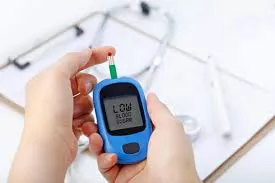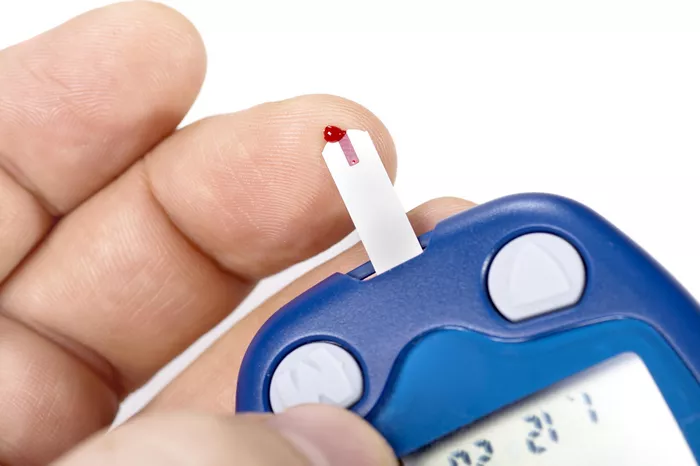Hyperglycemia, a condition characterized by elevated blood glucose levels, is a common issue among individuals with diabetes. While it is well-known for its association with complications such as neuropathy, nephropathy, and cardiovascular disease, its impact on the gastrointestinal system is often overlooked. This article explores the relationship between hyperglycemia and diarrhea, examining the mechanisms, causes, consequences, and management strategies for individuals experiencing this symptom.
Understanding Hyperglycemia
Hyperglycemia occurs when there is an excess of glucose in the blood. In people with diabetes, this can result from insufficient insulin production, insulin resistance, or both. Hyperglycemia is typically defined as blood glucose levels exceeding 180 mg/dL (10 mmol/L) after a meal or 126 mg/dL (7 mmol/L) when fasting.
Causes of Hyperglycemia
Insufficient Insulin:
Type 1 diabetes involves the autoimmune destruction of insulin-producing beta cells in the pancreas, leading to insufficient insulin production. In type 2 diabetes, the body either does not produce enough insulin or the cells become resistant to its effects.
Diet and Lifestyle:
Consumption of high-carbohydrate foods, lack of physical activity, and stress can contribute to elevated blood glucose levels.
Medications:
Certain medications, such as corticosteroids and some antipsychotics, can raise blood glucose levels.
Illness and Infections:
Infections and illnesses can trigger the release of stress hormones that increase blood sugar levels.
Symptoms of Hyperglycemia
Common symptoms of hyperglycemia include increased thirst, frequent urination, fatigue, blurred vision, and unexplained weight loss. However, gastrointestinal symptoms like diarrhea are less commonly discussed but can also occur.
The Gastrointestinal Impact of Hyperglycemia
The gastrointestinal tract is highly sensitive to changes in blood glucose levels. Hyperglycemia can affect various parts of the digestive system, leading to symptoms such as nausea, vomiting, abdominal pain, and diarrhea.
Mechanisms Linking Hyperglycemia and Diarrhea
Several mechanisms may explain the link between hyperglycemia and diarrhea:
Autonomic Neuropathy:
Chronic hyperglycemia can damage the autonomic nervous system, which controls involuntary bodily functions, including digestion. Autonomic neuropathy can lead to gastroparesis (delayed stomach emptying) and diabetic diarrhea, characterized by frequent, watery stools.
Intestinal Motility:
Hyperglycemia can alter intestinal motility, either speeding it up or slowing it down. Increased motility can result in diarrhea, as food passes too quickly through the intestines for adequate absorption.
Small Intestinal Bacterial Overgrowth (SIBO):
Diabetes increases the risk of SIBO, a condition where excessive bacteria grow in the small intestine. These bacteria can ferment undigested carbohydrates, producing gas and leading to diarrhea.
Malabsorption:
High blood sugar levels can interfere with the absorption of nutrients in the intestines, leading to malabsorption syndromes and diarrhea.
Inflammation:
Chronic inflammation associated with hyperglycemia can damage the intestinal lining, leading to symptoms such as diarrhea.
Causes of Diarrhea in People with Hyperglycemia
Several factors can contribute to diarrhea in individuals with hyperglycemia:
Diabetic Enteropathy:
Diabetic enteropathy refers to gastrointestinal complications resulting from diabetes. This includes conditions like gastroparesis and diarrhea due to autonomic neuropathy.
Medications:
Certain diabetes medications, such as metformin, can cause gastrointestinal side effects, including diarrhea.
Dietary Factors:
High sugar intake and consumption of foods that are difficult to digest can exacerbate diarrhea in people with hyperglycemia.
Infections:
People with diabetes are more susceptible to infections, including gastrointestinal infections that can cause diarrhea.
Coexisting Conditions:
Conditions such as celiac disease, lactose intolerance, and inflammatory bowel disease (IBD) are more common in people with diabetes and can contribute to diarrhea.
Consequences of Diarrhea in Hyperglycemia
Diarrhea can have significant consequences for individuals with hyperglycemia, impacting their overall health and diabetes management.
Dehydration and Electrolyte Imbalance
Frequent diarrhea can lead to dehydration and loss of electrolytes, such as sodium, potassium, and magnesium. This can cause weakness, dizziness, and muscle cramps and can be particularly dangerous for people with diabetes, who are already at risk for dehydration.
Poor Glycemic Control
Diarrhea can make it difficult to manage blood glucose levels. Rapid intestinal transit can affect the absorption of medications and nutrients, leading to fluctuations in blood sugar levels.
Nutritional Deficiencies
Chronic diarrhea can result in poor absorption of essential nutrients, leading to deficiencies in vitamins and minerals. This can weaken the immune system, impair wound healing, and contribute to overall poor health.
Impact on Quality of Life
Persistent diarrhea can significantly impact the quality of life, causing discomfort, embarrassment, and social isolation. It can also interfere with daily activities and work.
Management Strategies for Hyperglycemia-Related Diarrhea
Effective management of diarrhea in individuals with hyperglycemia involves addressing both the underlying hyperglycemia and the gastrointestinal symptoms. Here are some strategies:
Blood Glucose Control
Medication Adjustment:
Work with a healthcare provider to adjust diabetes medications to achieve better blood glucose control. This may involve changing dosages or switching to different medications.
Dietary Changes:
Adopt a diabetes-friendly diet that is low in refined sugars and high in fiber. Fiber can help regulate bowel movements and improve overall digestive health.
Regular Monitoring:
Frequently monitor blood glucose levels to identify patterns and make necessary adjustments to medications and lifestyle.
Managing Diarrhea
Hydration:
Ensure adequate hydration by drinking plenty of fluids, particularly water and oral rehydration solutions that contain electrolytes.
Dietary Modifications:
Avoid foods and beverages that can worsen diarrhea, such as high-sugar foods, caffeine, and alcohol. Opt for bland, easy-to-digest foods like bananas, rice, applesauce, and toast (the BRAT diet).
Medications:
Over-the-counter anti-diarrheal medications, such as loperamide, can help manage symptoms. However, it is essential to consult a healthcare provider before using these medications, especially for long-term use.
Probiotics:
Probiotics can help restore the balance of healthy bacteria in the gut, particularly for individuals with SIBO. Consult a healthcare provider for recommendations on appropriate probiotic supplements.
Addressing Underlying Conditions:
If diarrhea is related to conditions such as celiac disease or lactose intolerance, managing these conditions through dietary changes or medications can help alleviate symptoms.
Lifestyle Modifications
Stress Management:
Chronic stress can worsen both hyperglycemia and gastrointestinal symptoms. Incorporate stress-reducing practices such as meditation, yoga, and deep breathing exercises into your daily routine.
Regular Exercise:
Physical activity can help regulate blood glucose levels and improve overall digestive health. Aim for at least 150 minutes of moderate-intensity exercise per week.
Sleep Hygiene:
Ensure adequate and quality sleep, as poor sleep can negatively impact blood sugar control and exacerbate gastrointestinal symptoms.
When to Seek Medical Attention
While mild diarrhea can often be managed at home, certain situations warrant prompt medical attention:
Severe or Persistent Diarrhea:
If diarrhea is severe, lasts more than a few days, or is accompanied by significant pain or fever, seek medical help.
Signs of Dehydration:
Symptoms of dehydration, such as excessive thirst, dry mouth, reduced urine output, dizziness, or confusion, require immediate attention.
Blood in Stool:
The presence of blood or black, tarry stools may indicate a more serious underlying condition and should be evaluated by a healthcare provider.
Unexplained Weight Loss:
Significant or unexplained weight loss in conjunction with diarrhea and hyperglycemia may suggest malabsorption or other underlying health issues.
See also: How Does Hyperglycemia Cause Retinopathy?
Conclusion
Hyperglycemia can have wide-ranging effects on the body, including the gastrointestinal system. While diarrhea is not the most commonly discussed symptom of hyperglycemia, it can significantly impact the health and well-being of individuals with diabetes. Understanding the mechanisms linking hyperglycemia and diarrhea, recognizing the potential causes, and implementing effective management strategies are crucial for improving outcomes and quality of life. By maintaining good blood glucose control, making dietary and lifestyle changes, and seeking appropriate medical care, individuals with hyperglycemia and diarrhea can achieve better health and minimize the impact of these conditions on their daily lives.
Related topics:
How Hyperglycemia Can Lead to Diabetes


























